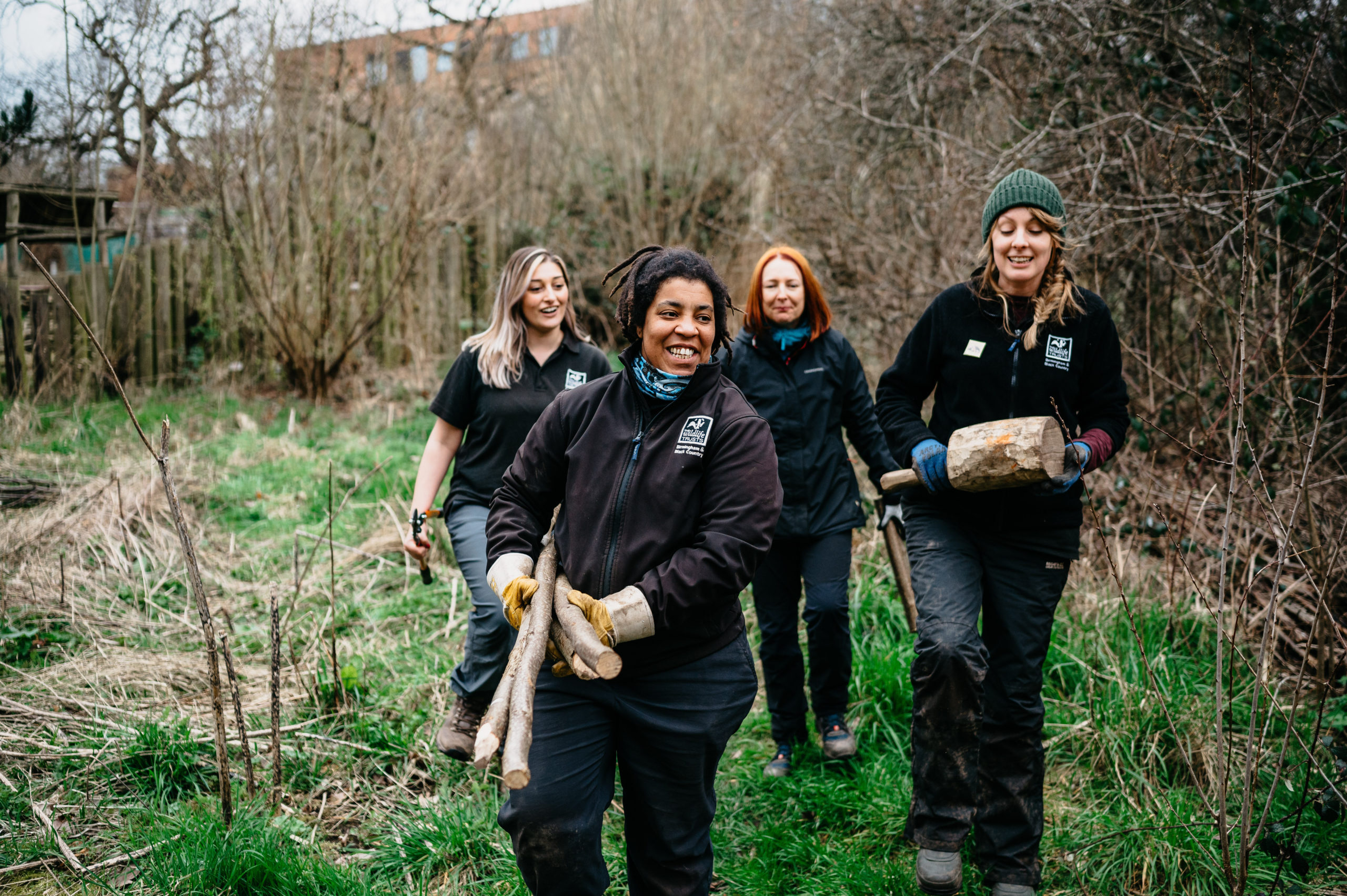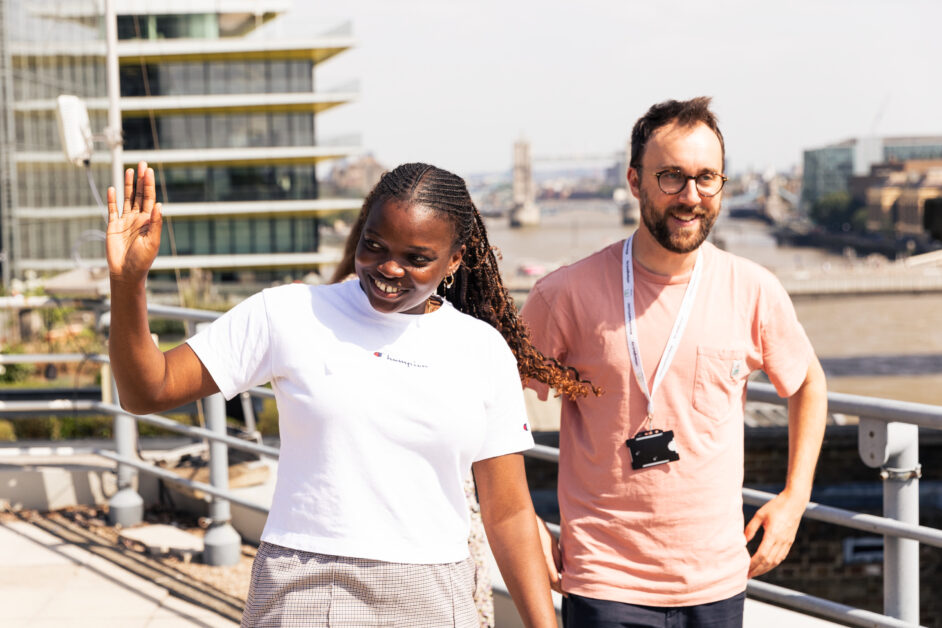We asked the UK Heritage Pulse panel of leading professionals and volunteers in the heritage sector what advice they’d give to someone considering a career in this sector.
You can read every one of the responses below, and here’s a summary of what they had to say:
- Gain experience and skills through volunteering and internships: Many respondents emphasised the importance of starting with voluntary work or internships to gain practical experience and understand the sector better. This also helps build networks and create opportunities for progression.
- Be prepared for low pay and limited career progression: Several responses felt that the heritage sector often offers lower salaries, some precarious jobs, and fewer structured development paths than other sectors. Some responses suggested pursuing freelance work and to seek out your own opportunities.
- Passion and commitment are key: A common theme was that you should enter the heritage sector if you are genuinely passionate about it. The work is rewarding in non-financial ways, and job satisfaction comes from doing something you believe in.
- Be open to learning and developing diverse skills: Heritage roles are multi-faceted, so it’s important to learn transferable skills and be creative in applying them. Developing skills in areas like fundraising, project management, and understanding the business side of heritage is valuable.
- Network and explore different areas of the sector: Building a network of professionals and exploring various fields within heritage can open doors to unexpected opportunities. Talking to people already in the sector and getting advice from mentors was frequently recommended.
The responses in full
Find a part of the sector where you can thrive and be creative – heritage is what you make of it and not what others (established heritage professionals) tell you it it – its for you to define and make work for you.
Express an interest with heritage organisations and look for volunteering opportunities
Gain work experience elsewhere before moving into this sector
A career in heritage can be extremely fulfilling. This is not an easy sector, or one that has high wages, but there is real reward in doing work that you find interesting, that you believe matters. Heritage careers can be very varied and you learn lots of transferable skills as many roles are multi-faceted.
Make yourself ‘visible’ and ensure you put a value on your skills (you will always have skills and experience to offer).
Volunteer and seek entry level jobs
Enter with open eyes – the sector is precarious, your job might be too, and the salaries are frequently poor. But there are huge opportunities for a rewarding career, where one learns every day among kind and supportive people, working in organisations that do genuine good in the world. If that fits with your values, and you understand the drawbacks and still want to be part of heritage, then dive in.
That while resilience is admirable (although is arguably promoted in a harmful manner in some respects in the sector, which is indicative of the lack of diversity within it), there are small groups who can support them, particularly if they are of multiple marginalisations.
Go for it. If it’s your passion as well, you will get so much out of it.
I would caution them that it’s a sector with, mainly, low pay and little to no structured development so I would encourage them to be prepared to work freelance and to, where possible, create their own opportunities.
Don’t be scared/disheartened by starting at the bottom, but also don’t be scared to put yourself forward to gain new experiences, skills and opportunities. Ambition and aspirations are good qualities, you just have to combine them with work and dedication.
Look very carefully at the sector of interest and talk to those already following a career. There will be pitfalls and benefits “hidden”, but important.
Talk to practitioners, gain diverse voluntary experience, have something unique to offer, understand the limitations of what you are getting into
Follow your gut instincts towards doing the work that can make you feel satisfied and able to make the change you want to see.
Make sure you are really interested in the subject to help bolster you while you make it through. It’s no longer properly funded and it will be difficult otherwise to sustain. It helps to be independently wealthy.
To get some volunteer experience to see if it is an environment they would enjoying working in, although that’s easier said then done.
Get practical experience through work experience, volunteering or temporary contracts
Researching and trying it out is a great start.
Consider what lifestyle you would like and whether a career in heritage meets these aims. Educate yourself in the breadth of the heritage sector – there are lots of interlinking sectors/sub-disciplines. Be ready to be creative with your interpretation of your skills and experience. It’s not always apparent where your training and sector-specific knowledge can be an asset for another role, but it will be!
You don’t have to go to university. It’s not easy but there are other pathways such as modern apprenticeships. Volunteering and internships can lead to employment. Maybe not immediately but it can be the difference that gets you that job.
Explore the heritage sector as widely as possible and find what appeals most. Do not be ‘directed’ by others.
Get some work experience, ask lots of questions and try lots of different things
This needs to be a vocation: it’s not a route to riches!
Get stuck in and volunteer!
do something you enjoy, get as many experiences as you can, look for transferable skills that you have, don’t dwell on set backs, there will be a role for you somewhere
Think about what you like doing
Get some practical experience with a voluntary heritage organisation Do a degree in archaeology If you want to go into artefact studies, try to do a post-graduate Research degree in a related area and develop both practical skills and a good grounding in material culture and social theory Don’t get side-tracked into consultancy or management but stay true to the discipline and its principles
Do it for love and not for money. Really well-paid jobs in the sector are few and far between. Volunteer whenever possible to gain experience, learn what careers are possible and enhance your CV
Use every opportunity to build your knowledge and skills through volunteering.
Connect with others and don’t give up. There is a huge appetite from heritage charities to diversify their workforce and board, look out for unexpected opportunities and don’t let a few “no” stop you.
The roles can be really varied and interesting. Go for it!
Take a bit of time – perhaps by volunteering or just by visiting several places and chatting to staff and volunteers – to understand which area of heritage interests you most. And try and think what you’d like to get out of the career and achieve over the medium to long-term. Overall, be interested; learn the skills you need and be prepared to learning; ask and be curious; understand – and, if possible, become skilled-in – the financial, commercial and funding aspects of heritage; and grasp opportunities when they present themselves.
Network – understand the sector. Develop fundraising skills and experience. Think of the transferable skills you have from any of your previous education and workplaces. Look at jobs you would like and work towards the skills you need. Don’t be afraid to ask for pre-packaged volunteer opportunities to be more tailored towards the skills you are looking for.
Volunteer first
Get experience, particularly of working with people unlike yourself. And don’t “volunteer” to spend time on a nice beach with turtles, do something that shows commitment.
Be curious and proactive about finding different opportunities to gain skills, experience and networks across the sector, both to grow your skills and work out what interests you. Volunteering can take many forms, from micro-placements to trustee roles; you don’t have to ‘do your time’ volunteering in one role where you’re not learning or connecting.
Go in through one of the built environment professions, such as planning.
Seek out advice and mentors dont listen to your careers adviser!
Volunteer at a museum or gallery, etc that interests you. Do as many different tasks as your role allows, and build your experience and your sector network.
To go for it!
Look for organisations that work in the subject areas you are interested in – heritage is brand church – seek out volunteer or better still paid internships or apprenticeships and seek out small heritage organisations as they often look for support but may lack the capacity to devote time to seek out young people to work with.
Have an idea of what you want to achieve in your career before you jump in. Don’t assume you’ll be able to move across departments easily later in your career. Be prepared to work hard and remember to enjoy it!
I would recommend that they think very carefully as it is not a viable career for many people. There are too few roles, salaries are low and there is little career progression.
Pursue your dreams. Consider diverse routes such as heritage sector to use your skills and creativity
Volunteer with your favoured organisations. Show commitment and enthusiasm. Be flexible and explore different avenues within an organisation. Take up any training offered. Be proactive.
Try to find paid work. Volunteering is great and if you are in a place financially to take advantage of volunteering to build connections and experience do it. But heritage is a place where no matter your role you can be involved in different things, so try and get something paid and build from there.
Don’t
Always study the subjects you enjoy. Visit heritage attractions for enjoyment! Understand that career paths are not set in stone.
Go for it. There is a future in the past.
Go for it and help them identify a mentor in the sector
try out lots of different roles, be on a board and see it from the strategic level, go with your passions. You will learn on the job, there are a million jobs you didn’t even know existed.
Do it if it makes you happy!
Do some volunteering first and ensure your basic business skills are developed alongside your interest in heritage.
Know that there are many paths to a career in heritage!
If you’re passionate about heritage go for it! Volunteer as much as you can to build up your experience and enhance your CV. The views of the past when everyone was expected to have a MA in Museum Studies is thankfully changing. Enthusiasm, a passion for heritage, willingness to learn, flexibility and an ability to share and engage others with heritage are what museums need.
Write to businesses involved in heritage and ask for a job!
Develop experience with volunteering to ensure the path is right for you. Be prepared to develop skills in understanding and developing audiences and heritage research. Project management experience and skills are useful and transferable.
Go for it. Be flexible. Expect challenges from every direction as you work for a small organisation where every staffer and volunteer is vital
Be prepared to do the job because you love it not because it will make you rich. You will meet the most amazing, wise, open and generous people in the sector, so be prepared to do a LOT of networking in order to learn, be inspired and develop your career
Look at job descriptions you’d be interested in, try to fill in the gaps with relevant experience. Don’t think that an MA is the guarantee!
You’ll get out what you put in.
Explore Different Areas of Culture and Heritage, engage with Local History and Culture. Focus on subjects like history, geography, art history, anthropology, and languages. Volunteer with your local Cultural Group!
It is rewarding but not well paid. A genuine love of history is helpful for curatorial roles and people/engagement for front of house ones. It is a friendly environment one the whole
Don’t expect to get rich financially; recognise and celebrate that there are other measures of value. Be enthusiastic. Hoover up, and share, the enthusiasm of those experts in your field. Be constantly curious. Be patient. Make connections – it’s a small world and the connections you make and the community you build are its lifeblood. There are lots of generalist/non-heritage skills that are vital to the sector: add value wherever you are.
Gain experience by Volunteering.
Get a broad range of experience and try out different things. I am in my current outreach / engagement role because I participated in public open days and handling sessions as a student. Also think about if there is a specific talent or interest you have within heritage that is particularly marketable. For example, not just doing archaeology, but developing skills in archaeological drawing, or honing digital skills.
Go for it! If the heritage sector attracts you, get involved. There are lots of people and organisations willing to help, but be aware, this is a sector low on resources.
People working in Heritage are naturally passionate about the historic environment and promoting a sustainable future for its care. This means that enquiries about future careers are generally very positively received … reach our and make your interest known
Volunteer to identify what aspect interests you most – try out different areas
Talk to existing practitioners to explore what opportunities might suit you.
Be prepared for low wages and insecurity of employment
Please note i am a freelancer so these questions were not very relevant but i do a lot of work geting Young people into heritage My advice would be to get as much experiece as possible – voluntary or attending opportunties – and network
Be open minded about what a career in museums means, roles in museums are often misunderstood, even by those currently working in sector and old fashioned ideas on the priorities for museums persist which characterise the sector negatively as being out of touch with current economic & social realities. Future proof professional development aspirations & training by engaging with sector on future needs and the types of roles that sector will need to develop i.e. commercial and digital
Look for opportunities to apply your skillsets in new ways that might support a heritage organisation. Many heritage organisations lack the skills that young people have around digital, marketing etc., and would benefit from young people’s input.
There are many opportunities, however most fall within the commercial sector. Publically fund heritage work is seen as an easy, soft target for cost saving. Local authorities should have a legal obligation to support heritage in all its forms including careers within museums, heritage buildings and “hands on” experience for young people.
It’s a fascinating area in which to work but you’ll never make a fortune
Take a wide interest in the arts, architecture and sociology (people)
It’s hard to give advice, because a lot of careers in the heritage sector (as a whole) are inaccessible. If you’re at the beginning of your career – you often need to know someone to get your foot in the door (especially if you have limited experience or require guidance). We need more funding to support organisations to be able to provide more accessible entry routes (including financially), and to inform YP about the variety of roles available in this sector. If a young person has found a viable entry route/opportunity and are trying to decide whether pursue it our advice is: “Do it! The heritage sector is at its best when we have a diverse range of people, voices, ages, and experiences represented. To get things right in this space, there’s going to be some things we need do differently, especially if we want to meaningfully connect with new audiences. We need new and fresh ideas/perspectives, which you as a young person can offer. So don’t be put off if you haven’t worked in the sector before, or for long. As your lived experience is just as valuable in helping to create a heritage sector that is inclusive, supportive, and welcoming to all.”
Think very carefully – jobs are scarce and there are limited opportunities. Acquire the best training/qualifications and range of experiences available.
To be resilient, but also ensure that they put their wellbeing and health first. Unfortunately, the heritage sector often encourages unpaid labour to the detriment of young people and early career professionals – while volunteering can be a great way to get involved, we cannot make it the ONLY way for people to gain experience in the sector.
It is not good to go straight from university to many heritage jobs, Gaining business, sales, marketing or fundraising experience could be vital. Whether we like it or not everything revolves around cash, and your ability to attract money, gifts and voluntary help could be vital
It’s an interesting niche career move with all types of career progression
Start by volunteering – it will help you to decide whether heritage is for you, and you’ll start making some valuable contacts.
Think about what they enjoy doing, what they are good at and what they don’t enjoy doing and look to match that to roles in heritage along with the reward they want from the work.



